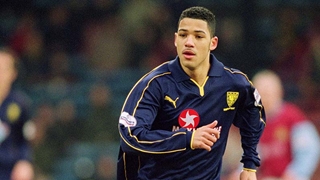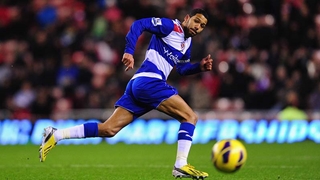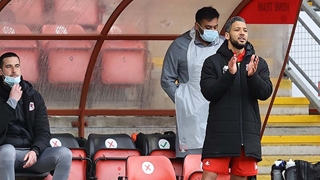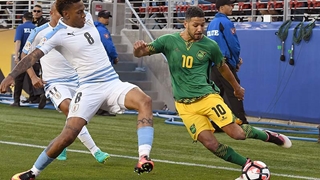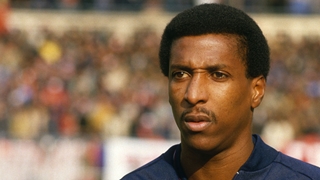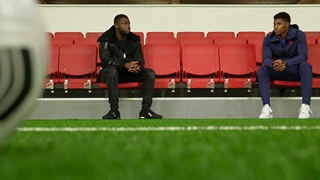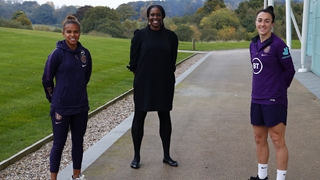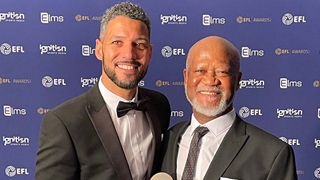
It’s been four months now since I joined the FA and I have to say, it’s been a really positive experience so far.
I first came into it knowing that I wanted to be honest about things that have been important to me, not just in my football career, but my life in general.
A big factor is the well-documented lack of representation for Black ex-players in the game whether that’s at coaching, management or executive level. I know from the data and speaking to people within the game that it’s still a big issue and a lot of work needs to be done.
I’m definitely someone who wants to help and be part of the process to improve things in that area, as well as other issues around discrimination and equality affecting people in the game at all levels.
That’s why I felt it was important I went for the role and the impact that I would like to have, so I saw it as a great opportunity to sit in front of the likes of Debbie Hewitt, Mark Bullingham and the other directors to have some really open conversations.
Those initial conversations were incredibly well received and very open and honest and that’s something which gave me a great deal of positivity throughout. Whether I got the role or not, it was fantastic to be speaking to people with such seniority at the organisation and discuss issues that have been really important to me.
Having spent most of my adult life in the professional game, coming through the youth team and then being involved in a first-team scenario for many years since, going through the whole interview stage was, for me, a process which I hadn’t done before.
So it was a learning process for me too and when I found out that I’d got the position, it was just fantastic and since then, I’ve been going through the induction phase and learning more and more about the FA and the breadth of its work.
Clearly, I don’t have the same level of boardroom experience as others but Debbie has been fantastic and feels the insight that I can bring from a playing and coaching point of view while still being involved in the game and speaking to a lot of people at all levels is a key factor for her and the board.
From my point of view there’s a willingness to learn and educate myself around other areas of the game, which I’ve never previously had to be involved in, so it’s been a great learning curve so far and one that I’m really enjoying.
My experience of the organisation previously was from my involvement in the professional game and to be honest, at times the FA had a bit of a negative reputation among footballers.
But it’s amazing to see what the FA actually covers across the whole of football and, having been there myself, I’m sure a lot of current players still don’t appreciate the different aspects and areas of the game in this country that the FA works in.
I think it’s important to have those conversations and really get across the important work that is being done to support football as a whole in England. That could be getting kids out and playing football, both boys and girls, and in so many different areas such as disability or the work at grassroots level such as helping to provide better pitches across the country.
It’s an opportunity for me which is incredibly exciting and it’s a great time to come in with the leadership we have at the FA and people who want to take things forward across the board to bring the FA into line with other organisations in the current climate.
In October, we celebrate Black History Month. I’ve got to be honest at this stage, I am a little conflicted on Black History Month as a concept.
For me, Black history IS history. Full stop.
I don’t think it should be shoe-horned into one month, where we can come out and talk about prominent Black people who have made contributions to society across the world in all the different sectors, these conversations, celebrations and the education around them should be taking place all year round in schools, work places and organisations up and down the country.
But at the same time, I think it absolutely must be celebrated and people should be recognised for what they’ve done whether that’s in sport, media, teachers, doctors, nurses and people making a hands-on impact in all sectors of our society.
For me, as the son of a Jamaican immigrant who like so many came to England as part of the Windrush generation when it was a completely alien place for him in terms of climate, people, employment, racism and to see his struggle and how hard he's had to work to be able to provide for myself and our family is truly inspirational.
Compared to a lot of his counterparts who came over at the same time, who really struggled, he managed to own his own property, run his own business, raise three kids and instil his beliefs and principles on his family, all while always having a smile on his face and a great sense of humour.
In sport, when people talk about their real role model or idol, it’s often somebody that people don’t really know. For me, I know everything about my dad – his qualities, what makes him who he is and he’s been a constant presence in my life and formed who I am today. A lot of my beliefs and principles come from him and he was my role model and inspiration growing up.
We had that balance too - my mum is from Portsmouth and I like to think we had the best of both worlds as I’m 50 per cent English and 50 per cent Jamaican and that’s always something which has been celebrated in our household.
I was fortunate enough to play for Jamaica myself and to represent one of my countries was amazing as it’s such a special place for me and my family. For my dad to go back over there and watch me play alongside other family members such as uncles and cousins was special and gave me some of the proudest moments of my career.
Jamaica has always been a massive part of my life, my dad always made sure we had regular contact with family there or it might be certain kinds of food we’d eat, music we'd listen to and just generally keep that Jamaican culture a constant presence.
If you ever go to Jamaica, and I’d recommend it to anyone, you instantly feel the energy of the people. There’s a real vibrancy and positivity amongst all Jamaican people and that really rubs off on others when they visit the country.
Away from the commercial and business hubs, there are certainly areas where many don't have some of life's luxuries, but people there are happy with what they have got and have had to learn to be incredibly resourceful and that’s an incredible lesson to have, especially coming from here where we can take so many things for granted.
You only have to look at people like Bob Marley and Usain Bolt, these are people who have made a real impact on the world stage and they’ve done it in their own style and with a swagger that is truly Jamaican.
I don’t think Jamaicans should be seen as just people who are entertainers though, those as well as many others have shown incredible leadership and have gone on to break down barriers and tackle some really important issues as well as bringing people together all around the world no matter what colour they are or what background they are from.
And for me, that’s what Black History Month should be about.


